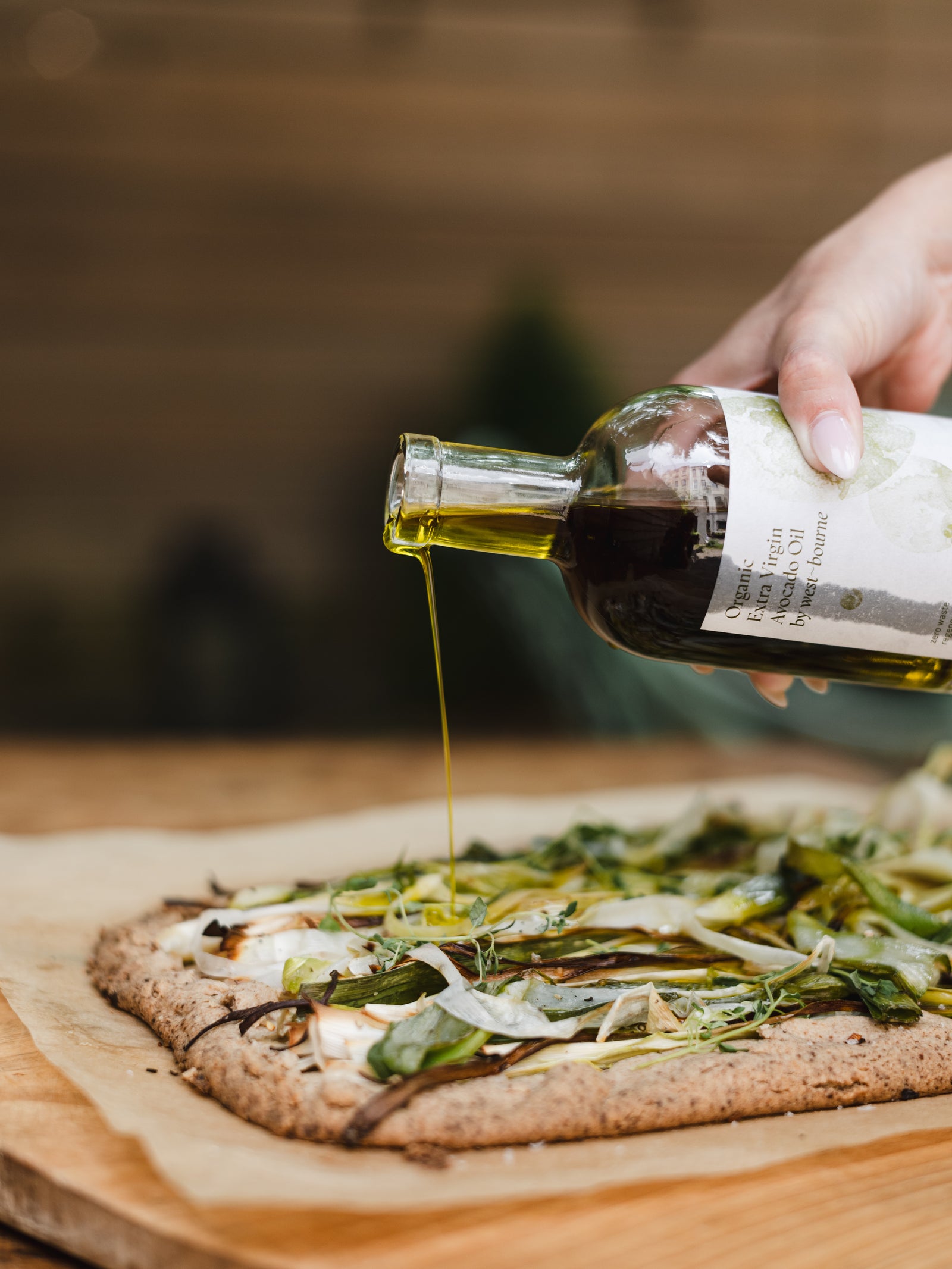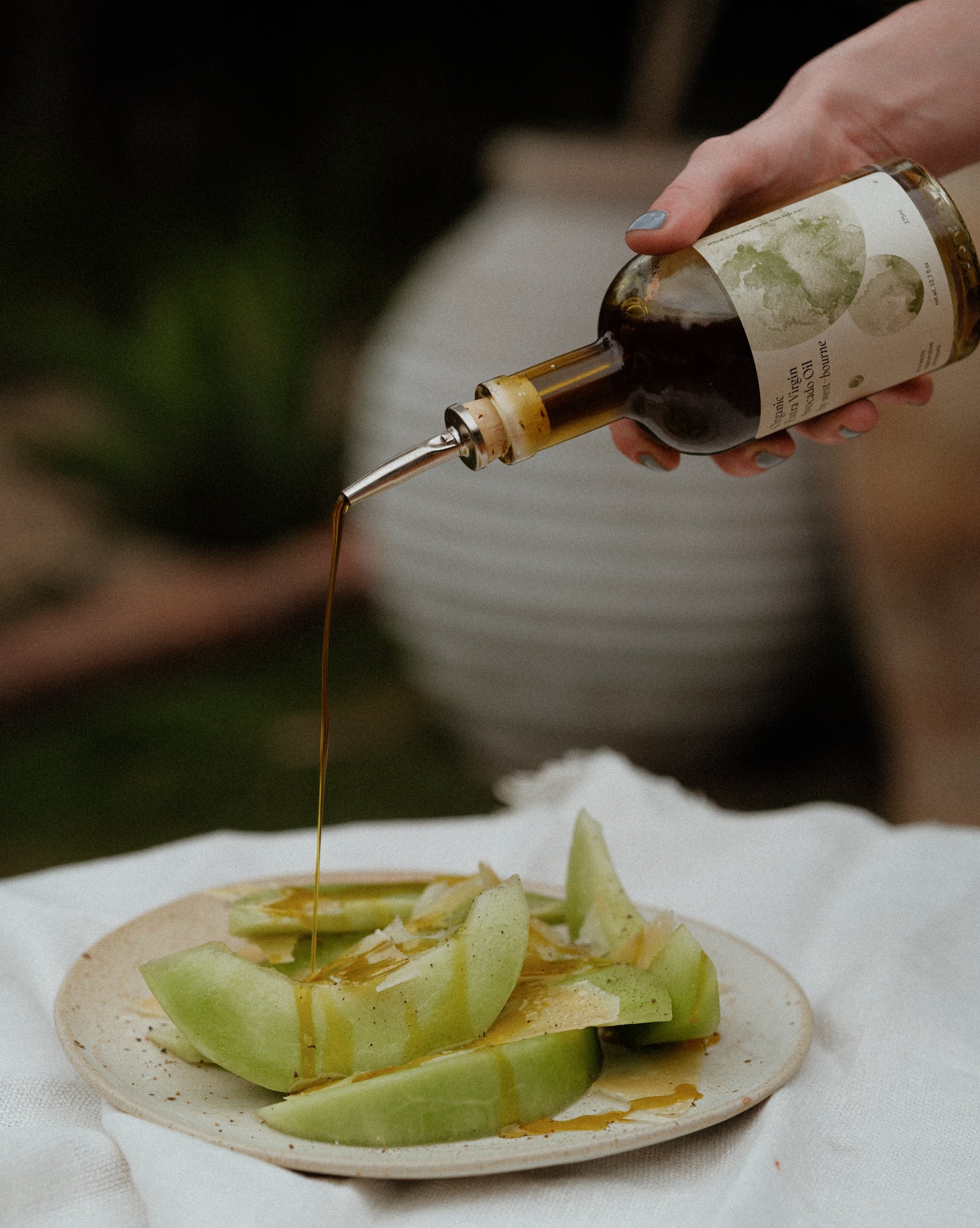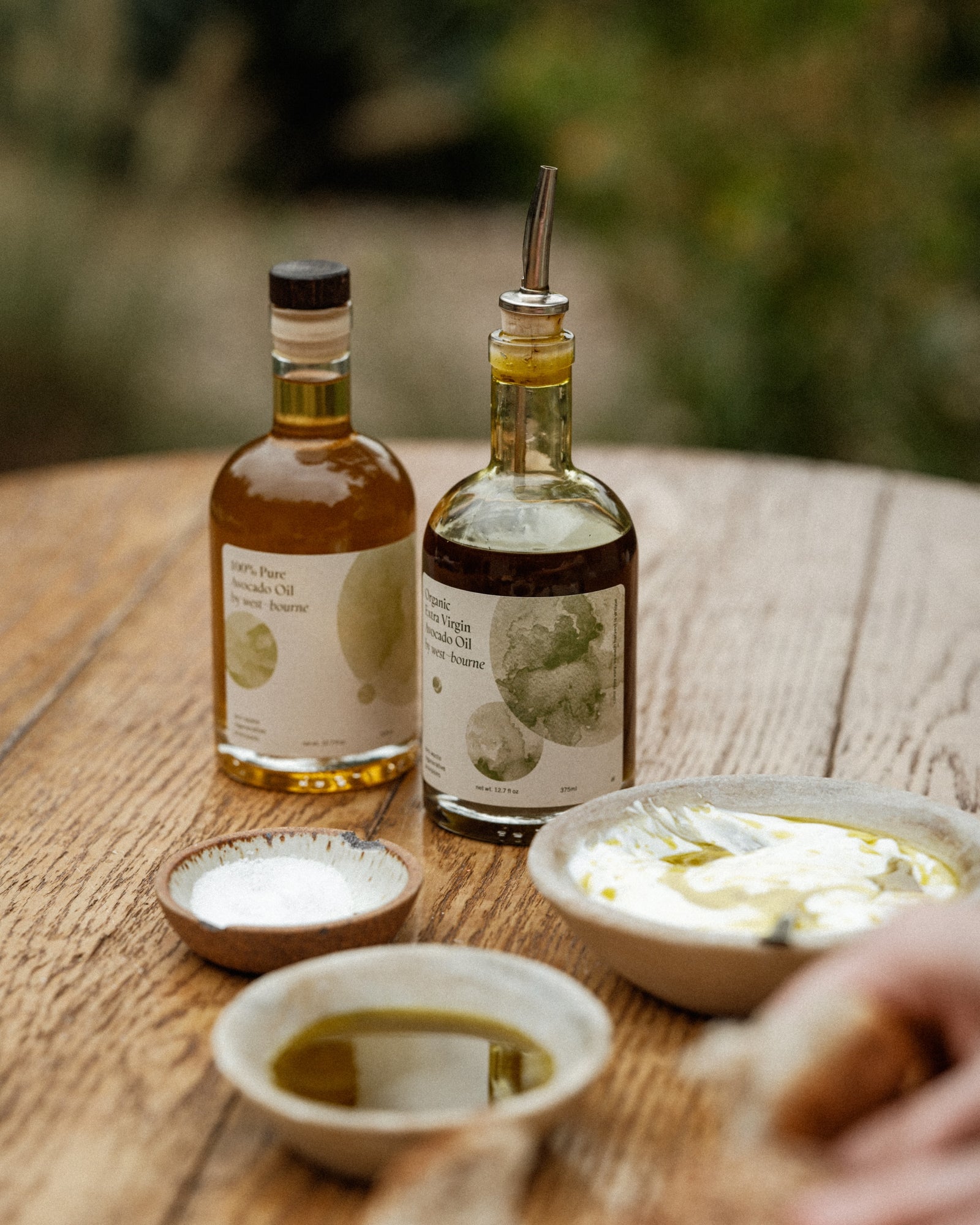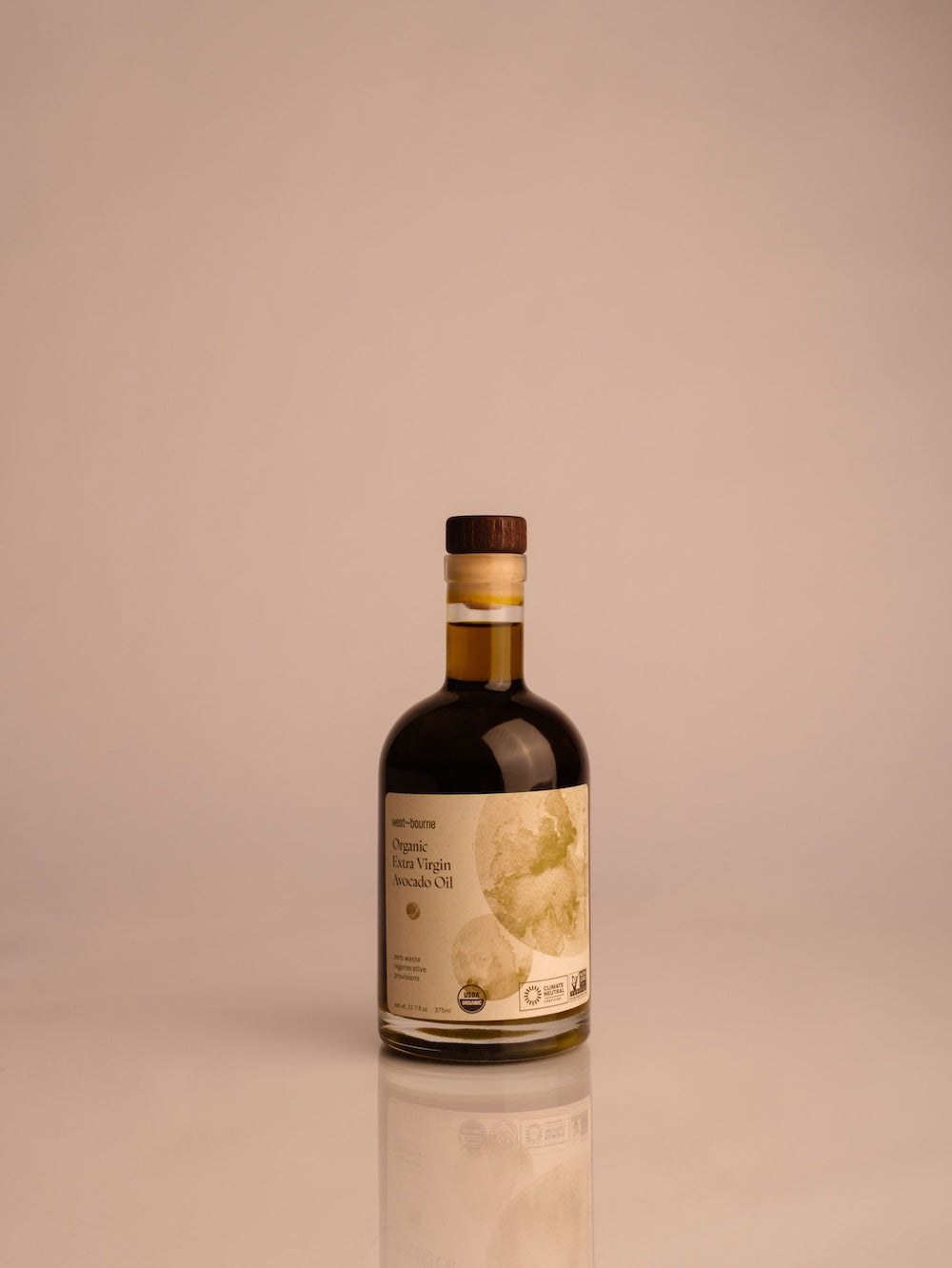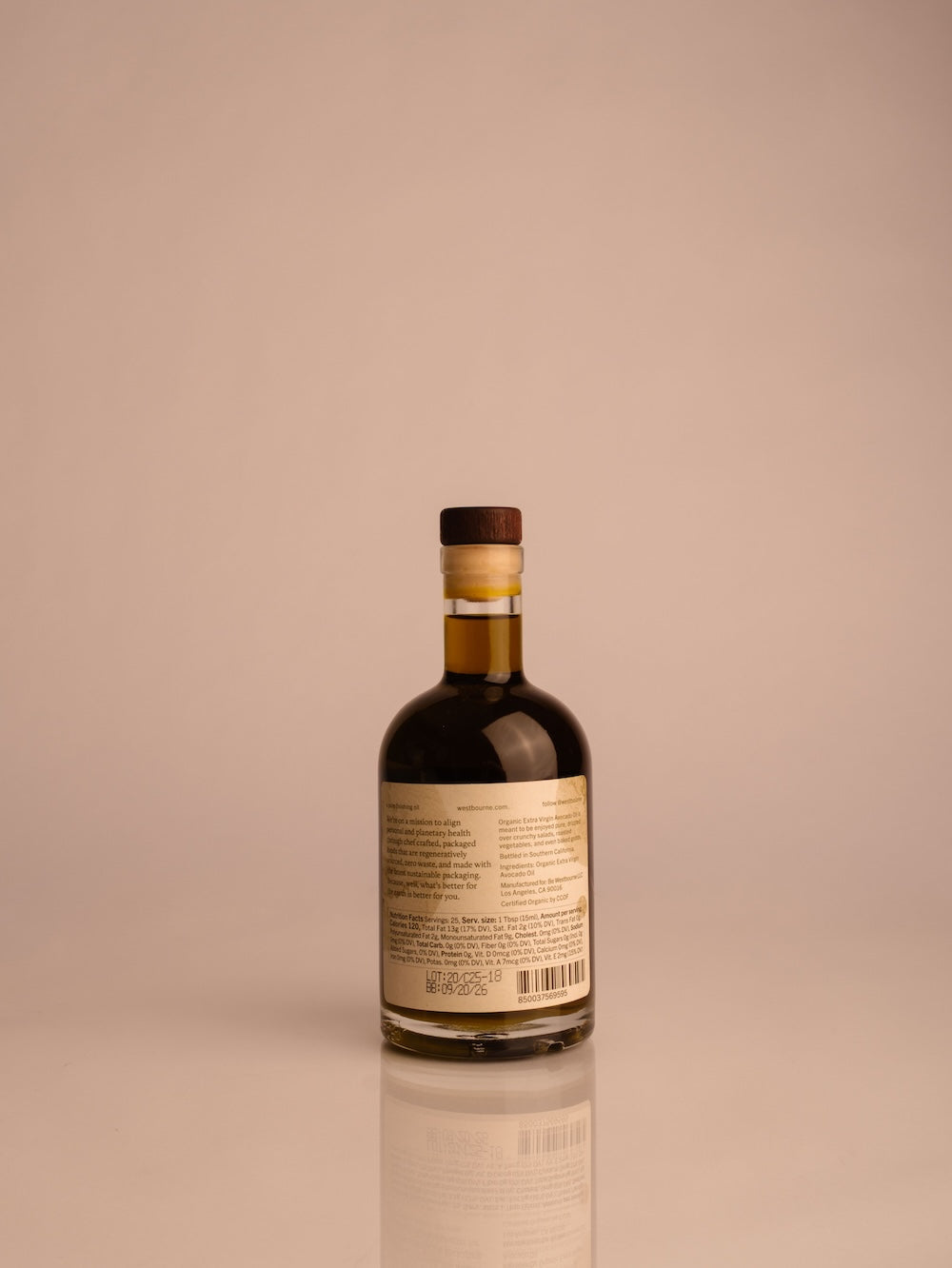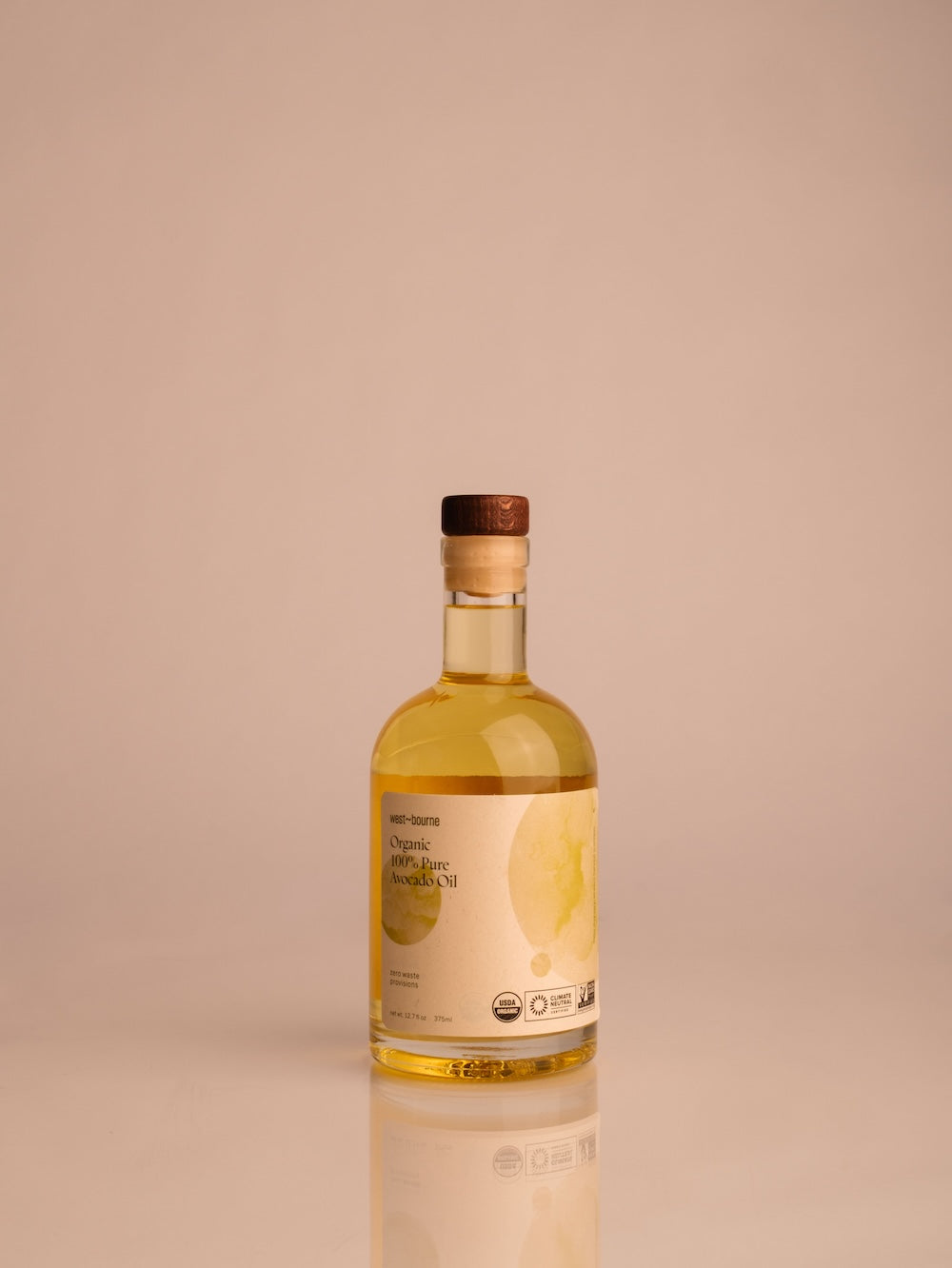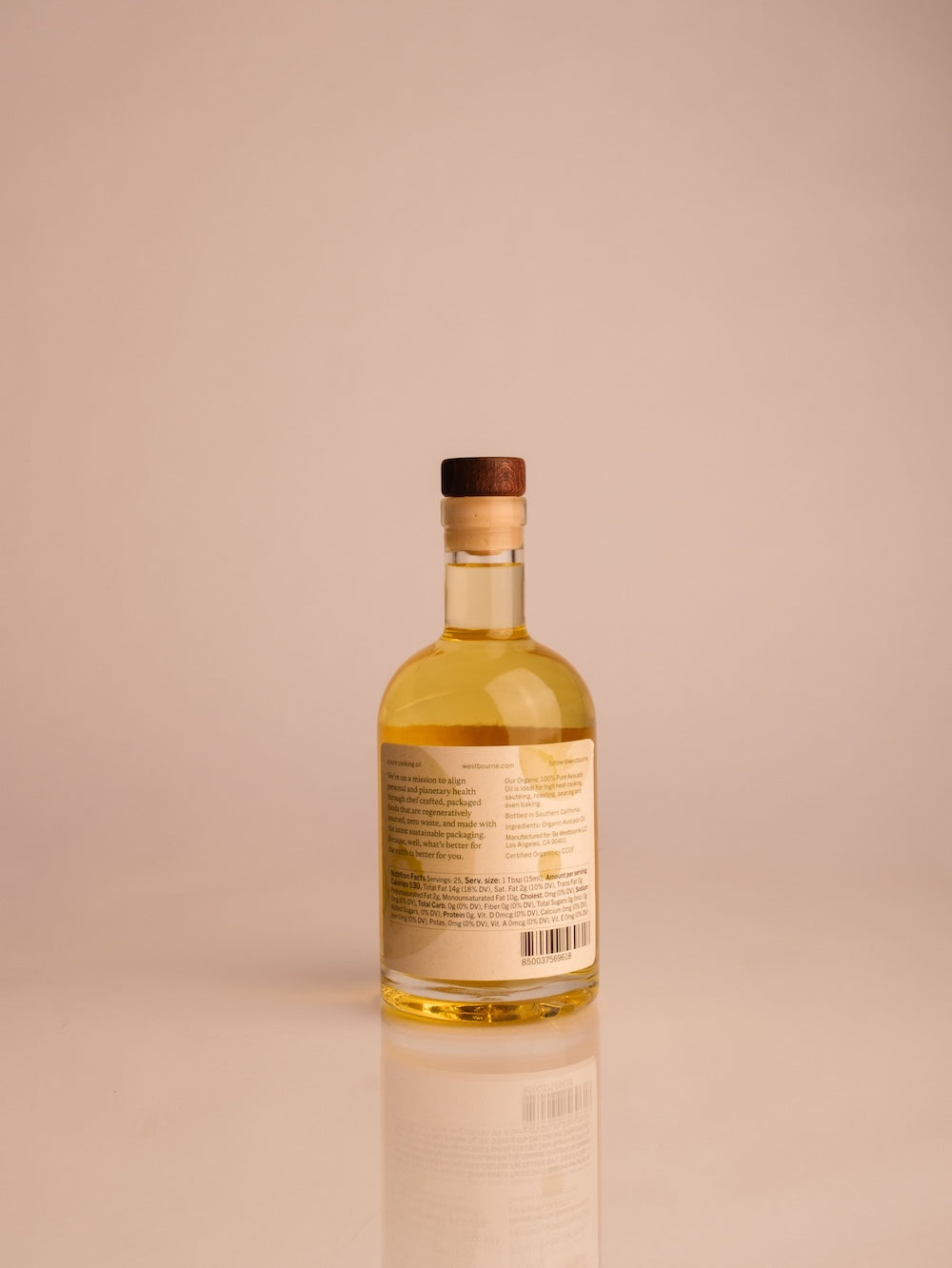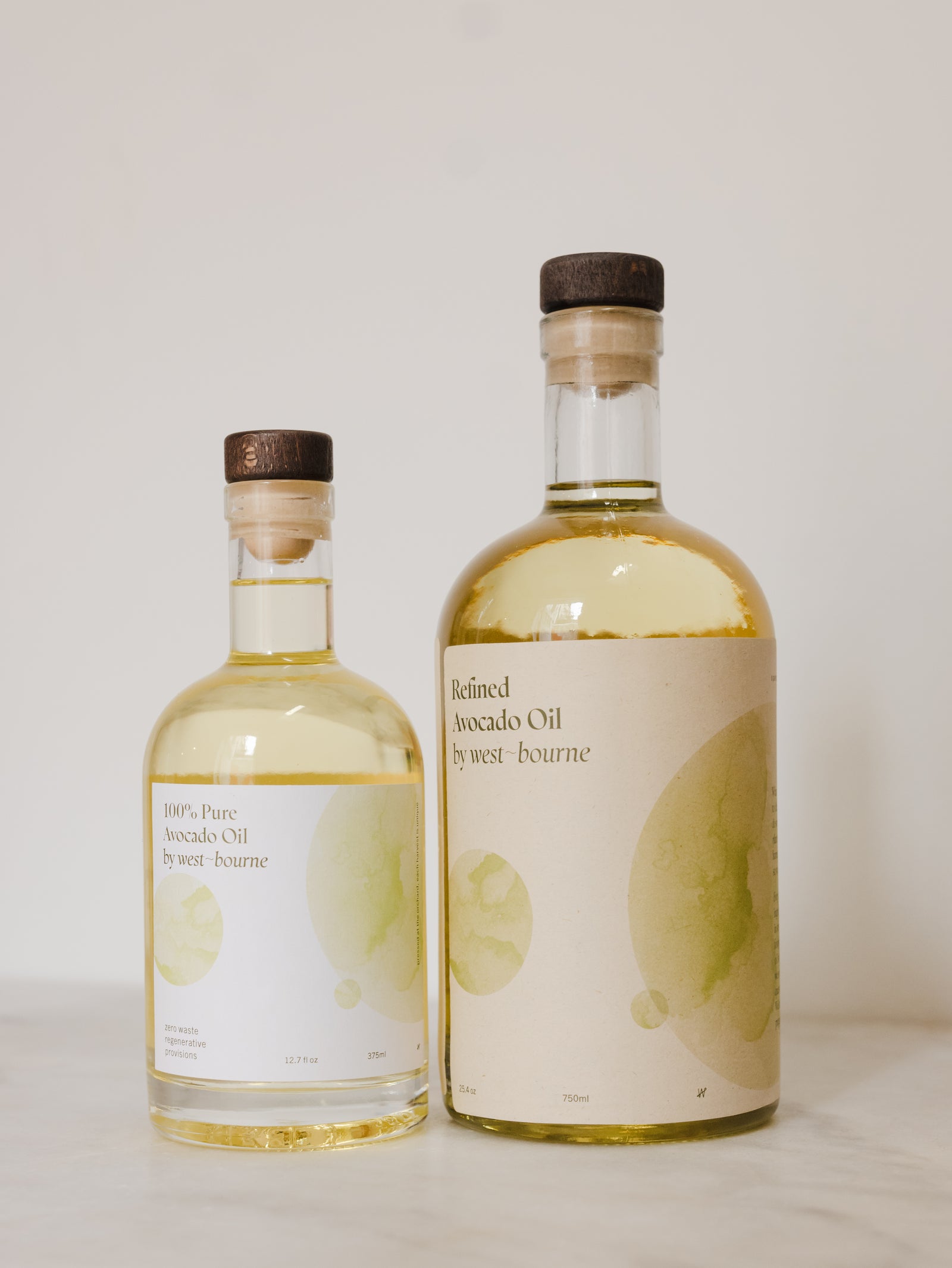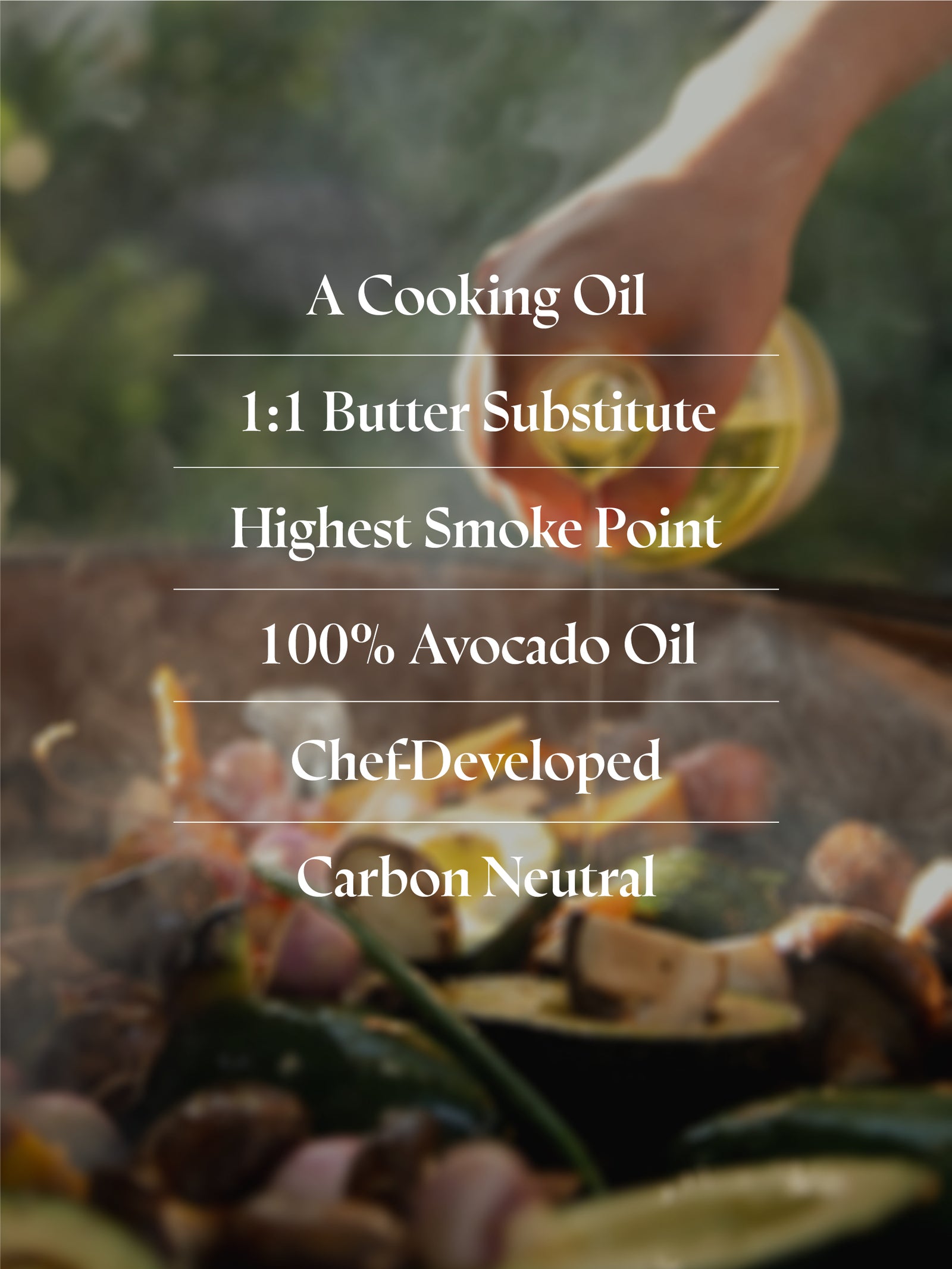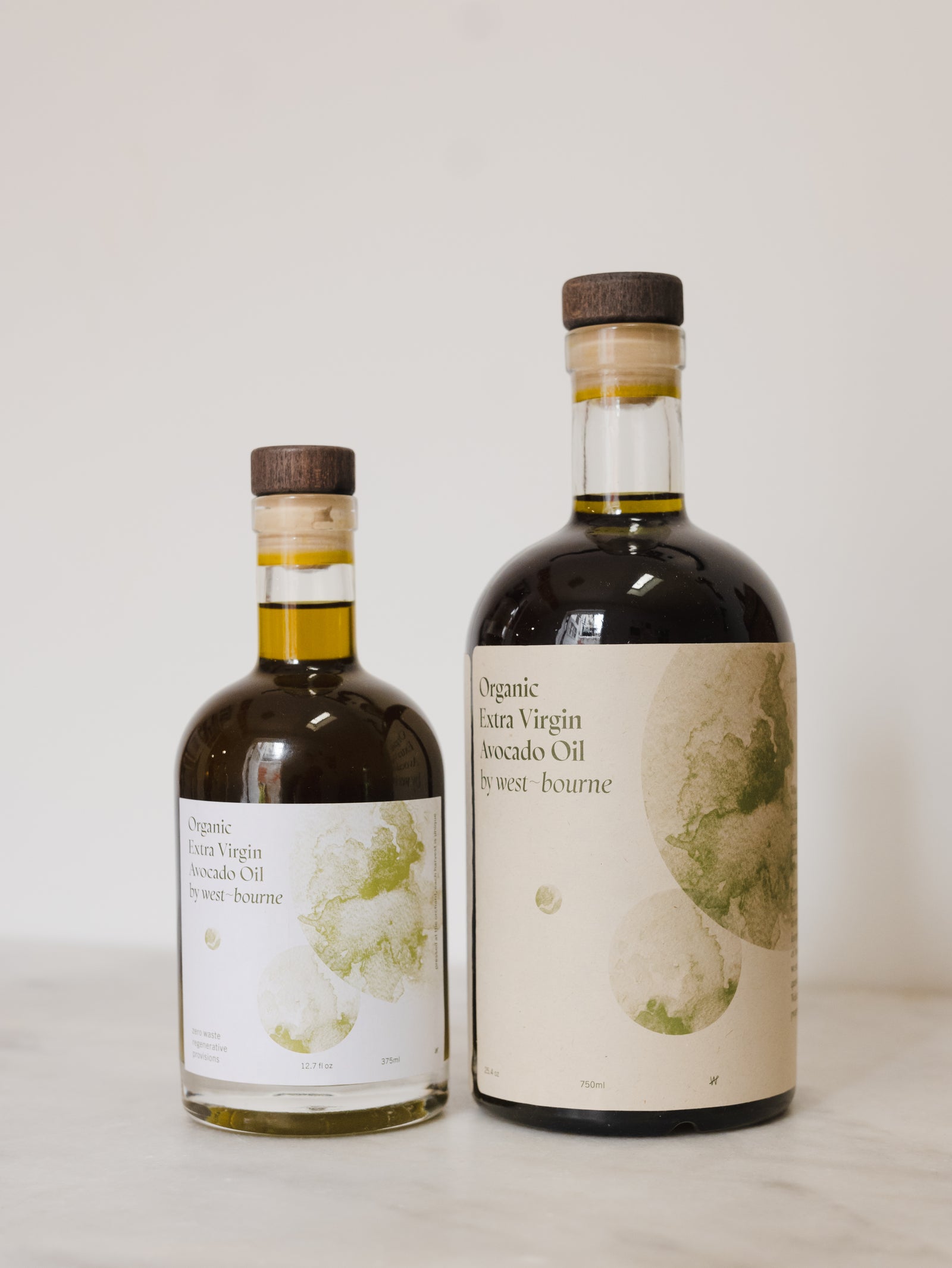Main Meal: Gabrielle Mirkin
Founder of Activist, a Mānuka Honey company.
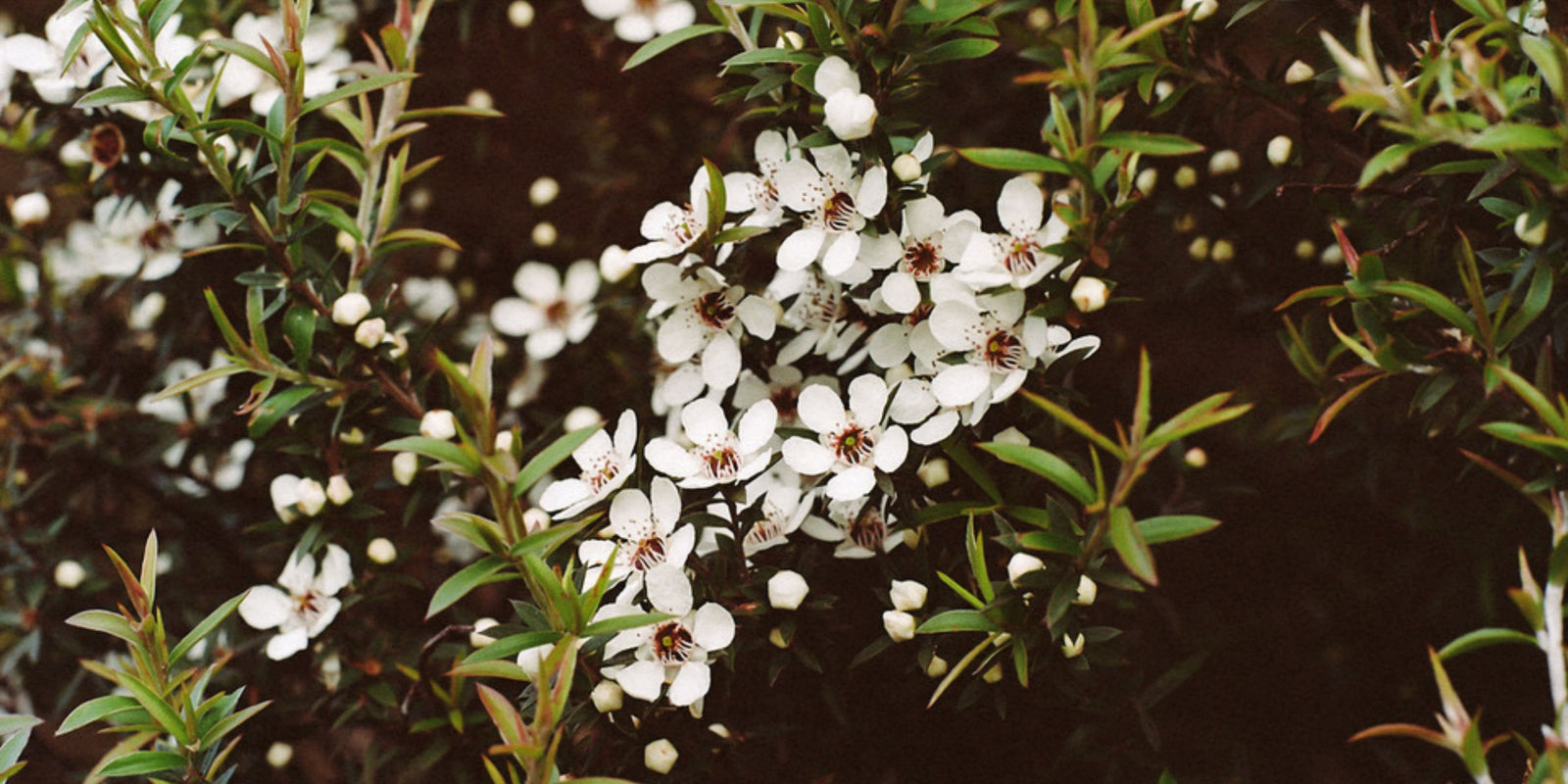
Activist is a Mānuka Honey company founded by wife and husband, Gabrielle Mirkin and Luke Harwood that centers around their shared passion for the earth and natural products. Much like west~bourne, Activist products are crafted with pure, intentionally sourced ingredients under the belief that nature holds the most powerful sources of energy, healing and regeneration. Here's our conversation with founder Gabrielle.
Tell us a little bit about yourself and how you became the founder of ACTIVIST. You mentioned that you and your partners shared passion for the earth and natural products can be traced to your childhoods in New Zealand. Can you tell us more about how those early experiences influenced your decision to start ACTIVIST and your commitment to environmental sustainability?
Growing up on an avocado farm in Aotearoa, New Zealand and spending my childhood at the ocean and in the native New Zealand bush, has without a doubt shaped the woman I am today and helped me to navigate founding my business ACTIVIST. After my time in New York City working in fast paced publications such as Vogue and Harper’s Bazaar and being diagnosed with Lyme disease, I now realize Nature is my greatest healer. When I need recalibrating, a walk through the thick native bush in New Zealand or a swim in the salty Pacific Ocean, will always bring me back to myself.
I have many fond childhood memories, most from spending time in nature with my family. My dad loved to bushwalk, every weekend we would discover a big new walk to take out in the Waitākeres through the thick native New Zealand bush. The color and smell of this native flora is embedded in my mind forever; wet, green, fresh, herbaceous, smells of Mānuka, Nikaus, Pungas and the songs of native birds, Tuis and Kererū. The smell and sound of home is so comforting to me. We also spent a lot of time at the beach in Northland swimming in the salty sea, collecting pāua and pipis, eating fish ‘n’ chips and fresh strawberries in the summertime and grilling corn on the cob on the BBQ. Every day, I know how extremely fortunate I am to have grown up in Aotearoa, Land of the Long White Cloud and the many blessings that this peaceful land has brought to so many people. I lived in New Zealand until my twenties when I then moved abroad and lived in Sydney, NYC and now California. I spent many years working in publishing as an art director for magazines; some of the highlights were working in Manhattan as an art director at Harper’s Bazaar and then Vogue magazine.
I now live in Topanga Canyon, which is nestled into the Santa Monica Mountains in Los Angeles, with my husband Luke and two young children, Cisco River and Tallulah Blue. My husband and I founded and run our family business ACTIVIST, which is a Mānuka Honey company specializing in beautiful high-grade Mānuka offerings for clean beauty, skincare and internal immune support and wellness. As a family, we’ve built a company that works prolifically with natural resources, not only natural resources but ones with an origin from our native country of New Zealand; which is our larger playground and one with which we have a deeper understanding. The ability to build a brand with limited industrial impact was very important to us. In essence, we are simply letting Mother Nature, the seasonal cycles, symbiotic relationships, and microclimates, cultivate the basis of our products. It is our role to present these to the world in their highest and unadulterated form with as little human interference as possible. My heart still lives in New Zealand and I know our family will live back there one day so, it is beautiful that our business is so connected to my home.


Can you share the story of your transition from the fast-paced world of fashion publications to the pursuit of natural healing therapies and the development of ACTIVIST?
I was living and working in New York City as an Art Director at Vogue magazine. Shortly after my 30th birthday, I became very sick literally overnight. I had many scary neurological symptoms and was finally diagnosed with Lyme disease. The disease I experienced was from more than just the tick bite which causes Lyme disease; my body and mind were so toxic from living a life completely out of balance, that my glass just overflowed. I was constantly overstimulated and depleted. My mind loved the idea of a big city, but my physical body did not.
After a month spent in Switzerland at a Biological Medicine Clinic, I returned to New Zealand, where my husband Luke and I spent a year living quietly on our piece of land in the Coromandel. Some beekeeping friends asked if they could place some hives on our land and we happily agreed. It was a transformative year. As my health began to improve, I became deeply interested in natural foods, preparing all our food from scratch, including nut milks, bread, granola, green juices, chocolates, and fermented foods such as sauerkraut. I really believe in the human body’s innate capacity to heal itself if provided with the right tools — one of these being nourishing foods from the earth and Mānuka Honey. Luke and I felt a pull towards creating a business that reflected our interest in the natural world and Luke’s life-long passion for surfing. We began noticing the activity of the local bees as we walked through the thick native bush to get to the ocean. We became so aware of the bees’ activity, that we learned to tell the time by their movements and began to understand their key role as environmental indicators. That was a magical moment for us. We felt the need to build a business that was in tune with our lifestyle and passions. We felt like we had kind of lost that, and that year in the Coromandel brought that back.
At the time, we talked about creating a honey brand as ‘a romantic idea,’ but we didn’t take the possibility seriously until we returned to the United States and started to look at the way Mānuka Honey was presented on the world stage.
A lot of the time, there’s this amazing resource made by bees and the beekeepers are doing a passionate and labor-intensive job, but it ends up being sold offshore and being diluted by mass distributors who dump it into chain stores and label it with whatever numbers they want (mānuka honey is graded and scientifically tested for its potency). We saw an opportunity to do something really beautiful — to work with the beekeepers to tell a transparent story while elevating mānuka. And so, ACTIVIST was born.
ACTIVIST Raw Mānuka Honey is wildcrafted in Aotearoa, New Zealand by bees that pollinate the native Mānuka bush during a short seasonal window in the spring and summer. Our Mānuka Honey is a beautiful and rare resource with considerably higher levels of enzymes and antibacterial properties than found in other honey. ACTIVIST is a leading global Mānuka brand in health and wellness and clean beauty categories. We are currently positioned in the world’s top clean beauty and wellness stores as having a very unique and elevated point of difference. Our staple pot honey: The Ultimate Ingestible and Topical Mānuka Products for Cellular Health and Beauty can be found in many different categories from skincare to high-end immune support function. It’s all courtesy of our high-quality Mānuka resources and other interesting natural botanicals and bio-actives.
Why Mānuka Honey? What are the benefits and what sets ACTIVIST's Mānuka Honey apart from others in terms of quality and potency?
Mānuka is the beautiful tree and wildflower native to Aotearoa New Zealand. Depending on the year's climate and weather patterns of the Southern Hemisphere, Mānuka flowering starts at the beginning of spring at the top of the North Island of New Zealand and makes its way south. The flowering of Mānuka is a very short window ranging anywhere from two to six weeks of the year. Because of such a short window for the wild-crafting of Mānuka Honey, the season is labor intensive, preparation for bee-health is crucial and no time is wasted when the Mānuka is flowering. Factoring in so many elements over harvesting is essential to get our premium high grade Mānuka Honey so pure and unadulterated.
ACTIVIST Mānuka Honey is one of the most unique and beneficial forms of honey in the world with considerably higher level of enzymes than regular honey. Mānuka’s active agent is methylglyoxal (MGO)—the measured concentration that determines the potency of the honey. Overall, Mānuka is highly anti-inflammatory, antibacterial and antimicrobial, making it a great addition to any wellness and beauty routine and health apothecary. Mānuka Honey is used internally and topically and helps many ailments including: immune support, acne, eczema, and dermatitis, skin repair, healthy aging, burns and wounds, digestion and oral health.
Mānuka is an extremely special and beautiful resource native to New Zealand where we are from. ACTIVIST Raw Mānuka Honey has amazing health benefits, natural anti-bacterial and active properties which come from the nectar of the plant. Our product is raw and unprocessed, therefore retaining all the natural properties. Mānuka Honey is a great addition to any wellness routine, apothecary, and beauty cabinet. We are proudly female founded, glyphosate-residue free certified, Non-GMO Project Certified and an active member of One Percent for the Planet. Our high-grade mono-floral Mānuka Honeys are also of Single Origin, which is a unique point of difference for us that no other Mānuka Honey brand offers; meaning our honey is sourced from one location (set of hives), not from hives all over the country and then blended together to make a final product.


Sustainability is a central theme for both Activist and west~bourne. Can you elaborate on your personal views on sustainability and how it guides your approach to both your products and business practices?
Our personal interests and lifestyle passions are very much around environmental conservation which is why ACTIVIST came to be. At the core of our business and products, we are working prolifically with natural resources—specifically, Mānuka Honey. In essence, we are simply letting Mother Nature, the seasonal cycles, symbiotic relationships and microclimates cultivate the basis of our products. With this mindset, it is simple to invest back into environmental areas we can help protect and nurture.
Sustainability is a tough and trendy topic, but what does it mean to us and ACTIVIST? Our personal views on sustainability are driven around conservation. We naturally gravitate to a less is more approach to life and simple living; a lifetime of surfing has been an important teacher of this. Surfers tend to be natural environmentalists and surfing represents the ebbs and flows of life. Over time you become a student of coastal weather patterns and climates while relishing in the beauty of native settings and the natural sculptures that are seen as regional landmarks. It’s hard not to have respect or a greater understanding of the larger living organism that our global environment is when so closely connected to it.
In your commitment to sustainability, you mentioned the importance of transparency and minimal packaging waste. How do you balance the desire for transparency with the need for packaging and presentation in the beauty industry?
As for business, it’s important to us that each product under ACTIVIST is presented with 100% transparency, sustainability and natural ingredients. Each of our products are created from a genuine and personal story of use and need. We choose to stay away from single-serve style products or packs that create an excessive packaging-waste to intrinsic product ratio. We also don’t think about sustainability as a “cost”; its benefits are its own reward! While we still have a lot of work to do we truly believe that excessive consumerism and human consumption is one of the largest problems that is driving so many issues in the world right now. That is why we stick to the ACTIVIST way of sustainable business practices, organic sales growth and only using what you need — all while being grateful for what we have.
We like to support local trade in New Zealand; our honey jar vessels are locally produced less than 100km from our honey factory. We like to keep our carbon footprint low by not importing vessels from overseas to New Zealand and then shipping them all the way back to the USA, Europe and Asia.


Most people feel like it's beyond them to help make a difference. What are some ways people can be more sustainable/environmentally conscious in their own lives?
I believe people can be more sustainable and environmentally conscious in their own lives by cultivating symbiotic relationships with bees!
At ACTIVIST we are proud to have total transparency with our customers about our environmental and bee sustainability efforts. Here is a list of ways you can contribute to the sustainability of bees:
1. BUY RAW, SUSTAINABLE HONEY
Buying raw honey puts money into the pockets of small-scale beekeepers as opposed to large honey companies, which may source honey from producers who do not treat their bees as well. Pay a price that truly represents its value. A bee visits hundreds of flowers to collect pollen that creates this alchemic, health-giving golden ambrosia. Vegans, you do not need to be afraid of hurting the bees when you consume sustainably sourced honey. They are also not harmed in the making of honey. It’s a natural part of their life process. Trust us, you can kill more bees eating from mono-crop large scale industrial farms.
2. CUT OUT CHEMICALS
Stop supporting agrochemical industries and spraying insecticides, pesticides, rodenticides, etc. around your home and garden. Some pesticides such as, Neonicotinoids, can remain in the soil for years, and work by poisoning the sap and nectar of plants, so that pests which feed on the plant are poisoned as well. This unfortunately poisons the bees and butterflies as well. Bees get confused when they consume insecticides and this disorientation can kill them. Make sure to avoid treating your yard with pesticides, especially when flowers are in full bloom. The contaminated pollen will be collected by bees and taken back to the hive where it could seriously harm the entire colony.
3. REPLACE WITH NATURAL PEST CONTROL
There are so many natural alternatives to chemical pest control. Some great examples are putting up birdhouses to bring birds that eat pests and insects, using water or ladybug houses to eat aphids, or spreading coffee grounds to keep slugs away. Complementary planting within your garden is great way to promote biodiversity and keep the invaders away. Lastly, try looking into Myco-Grow, a revolutionary product that uses fungi for pest control. There are so many options on the internet or ask your local nursery for advice.
4. PLANT A GARDEN
Plant flowers to help promote bee repopulation! It is simple; bees eat pollen, flowers produce it. Bee-friendly plants are easy to grow, such as dandelions and clovers. Just scatter a variety of seeds through your yard and let them bloom with the seasons. Bees prefer flowers that are blue, purple or yellow. Sage, salvia, oregano, lavender, ironweed, yarrow, yellow hyssop, alfalfa, honeywort, dragonhead, echinacea, bee balm, buttercup, goldenrod and English thyme are all wonderful food sources for bees. Flowering trees such as tulip poplars, tupelos, oranges and sourwoods are also great options. Another great tip, plant leafy vegetables in your home garden to go to seed after harvest, as seeding plants are a bee's best chance to stock up on food before the colder months.
5. WRITE TO YOUR LOCAL COUNCIL OR REPRESENTATIVES
Write and ask them to stop the use of pesticides in public spaces and on public owned land. Ask them to include more bee-friendly plants around the community. Lastly, ask for grants to begin a community garden and start growing food and foliage!
6. EAT LOCAL
Support your local farmers and eat organic, local produce. The monoculture system prevents biodiversity from thriving and ultimately not only kills bees, but our entire environment. I think we have a misconception that if you are vegan, you are sustainable. But, eating foods such as drought causing almonds, chemical ridden bananas, and monoculture berries are actually horrible for the environment. We can have a false assumption that if an animal is not involved in the process of production of food, it is automatically healthy for your body and the environment.
But truthfully, when we eat vegetables and fruits that are not sustainably or locally sourced, we are most likely contributing to horrible environmental devastation and a greater biodiversity decline among animals and insects. Also, bees help make all the crops we eat, so you are actually eating foods that animals helped produce everyday!
7. PROVIDE SHELTER
A secure place to live is crucial to solitary and colony bees. Honeybees live in waxy hives and other natural bees make shelter in abandoned animal burrows, dead trees and in underground nest tunnels. You can provide rent-free housing for wood-nesting bees by setting out bee blocks or providing a mound of loose earth.

